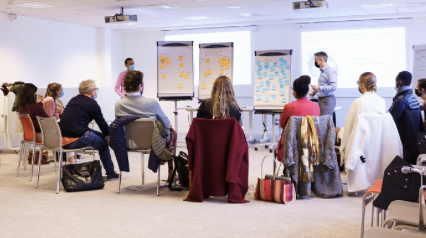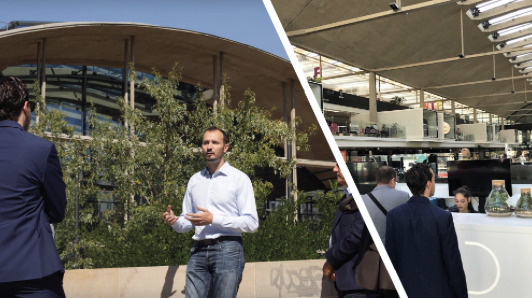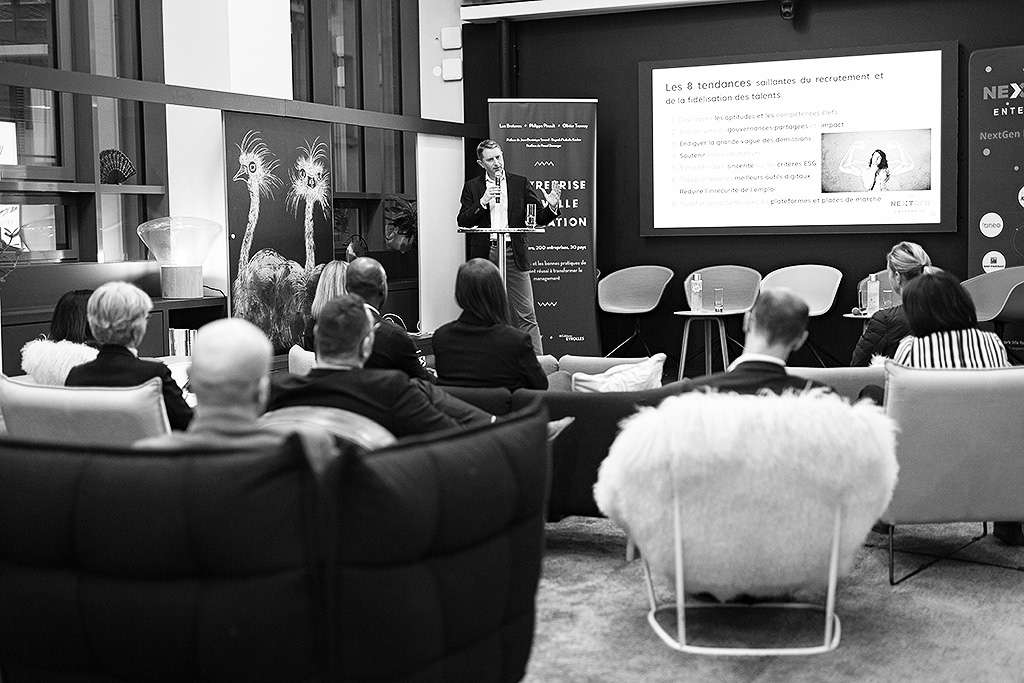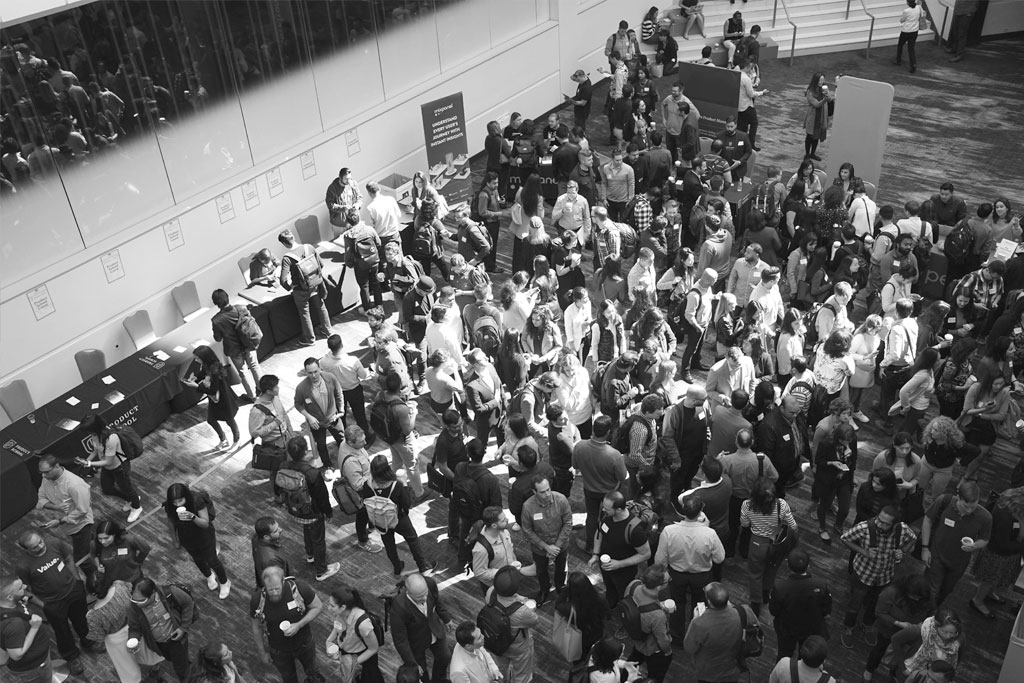In 2023, NextGen intervened with 200 teams, from the Executive Committee to the operational teams.



Customized training and Masterclass programs
Support in transformation
Management maturity audits



Seminars and internal conventions
Learning expeditions
Inspiration sessions in Executive Committees/Steering Committees

Finding your way to the next generation enterprise is not easy.
From the distribution of authority to the implementation of a robust company culture and new managerial practices, we highlight international best practices to help you overcome your transformation challenges.
The emergence of a strong collective intelligence and engagement will generate sustainable value for all stakeholders.

The NextGen Leaders Club is an exclusive, active international network of leaders and pioneers who believe that new governances and management modes are possible.
A real opportunity to connect with peers and pioneers, a space for mutual support and sharings.
From daily monitoring to regular in person and online meetings towards a wide catalog of professional content, share your challenges, your experience, your doubts, and convictions, to build together the Next Generation Enterprise.*

The ultimate place to learn and experiment new forms of governance and new management methods.
With our series of masterclasses, taught by international leaders and pioneers, learn from those who have already taken action while connecting with a large community of alumni.
In addition to our premium NextGen Club content, our Academy is a real opportunity to enter in direct contact with our wide range of speakers from around the world and study experiences from the world’s most innovative organizations.

From an embodied culture to purpose-driven organizations, decentralized authority and agility, we will share the testimonies and know-how of pioneers to engage today’s and tomorrow’s organizations in the most formidable of adventures: the expression of their collective intelligence and the realization of their mission, reconciling growth and common good.
Two focuses for this second edition:
• Corporate culture & personal and collective dynamics
• Scaling up & Next Generation Enterprises
Year after year, we offer an inexhaustible source of inspiration for those who believe that new ways of working are possible.

The whole NextGen Experience just for you! Challenging ideas with those have taken action, raising awareness and engaging your leaders in the transformation process, inspiring your managers with specifically chosen speakers towards dedicated learning expeditions, interventions in management committees and customized series of masterclasses.

We selected “the Best of the Best” of international speakers and experts in order to co-built inspiring and practical events and masterclasses. As real partners, regularly part of our events, they share their expertise and experience with our communities through live or “on demand” sessions.
Our network of over 300 speakers can accompany your transformation projects throughout the NextGen Club, the Academy and “NextGen for You” programs.
“We don’t only care about helping you find your way into the future of work”
“We care about you getting into action!”
| Cookie | Duration | Description |
|---|---|---|
| cookielawinfo-checkbox-analytics | 11 months | This cookie is set by GDPR Cookie Consent plugin. The cookie is used to store the user consent for the cookies in the category "Analytics". |
| cookielawinfo-checkbox-functional | 11 months | The cookie is set by GDPR cookie consent to record the user consent for the cookies in the category "Functional". |
| cookielawinfo-checkbox-necessary | 11 months | This cookie is set by GDPR Cookie Consent plugin. The cookies is used to store the user consent for the cookies in the category "Necessary". |
| cookielawinfo-checkbox-others | 11 months | This cookie is set by GDPR Cookie Consent plugin. The cookie is used to store the user consent for the cookies in the category "Other. |
| cookielawinfo-checkbox-performance | 11 months | This cookie is set by GDPR Cookie Consent plugin. The cookie is used to store the user consent for the cookies in the category "Performance". |
| viewed_cookie_policy | 11 months | The cookie is set by the GDPR Cookie Consent plugin and is used to store whether or not user has consented to the use of cookies. It does not store any personal data. |